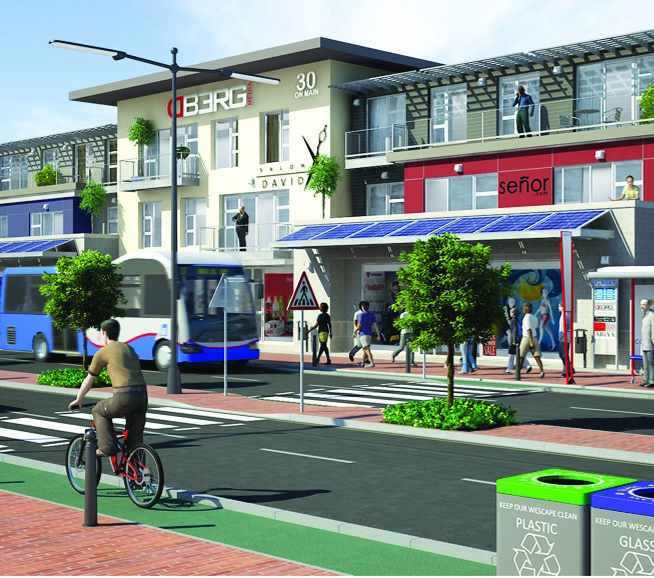
Some say the development, 24km from Cape Town city centre, should be placed where economic activity already exists
On paper, the Wescape urban development looks like a solution to several of Cape Town’s problems.
It is a brand new city for both rich and poor. There’ll be houses, places to work, schools, hospitals and a university.
Not everyone, though, is buying into the utopia that the private developer, communiTgrow, is envisioning.
Rather than building a new city, empty land in Cape Town should be developed, says Gavin Silber, a city planner with Ndifuna Ukwazi, a grass-roots organisation that campaigns for “urban justice” in Cape Town.
“It’s extremely difficult to stimulate an economy in the middle of nowhere. We should rather develop where economic activity is already present,” he says.
Plans for the Wescape development, which will be situated about 24km from the Cape Town city centre, are advancing rapidly.
The environmental impact study is being done and the company is also preparing its rezoning application, says Gita Goven, chairperson of communiTgrow.
The application to have the city border extended was approved in 2013 by Anton Bredell, a local government minister in the Western Cape.
The city will be developed over a period of 20 years and will eventually consist of 200 000 houses for 800 000 residents.
The idea is that people won’t have to travel far to go to work because 300 000 job opportunities will be offered within
the new city.
Wescape’s developers say it will be an integrated city, with people from different income groups and various sociocultural backgrounds.
Opponents of the project say the plan is exactly the opposite of what is accepted as the best principles for the establishment of an integrated city.
Silber says chances are good that Wescape will attract only people who cannot afford to live closer to Cape Town itself, so, just like during apartheid, it will become a suburb where poor coloured and black people live.
According to Silber, the solution is rather that residents in the city centre and surrounds live closer to each other, and that government makes available more subsidised rental homes.
Open land is available in District Six, where the Athlone Power Station used to be, and in Sea Point, he says.
According to the timeline on Wescape’s website, the city will be developed in stages, starting with construction, light industry and manufacturing, then retailers and services will be added, followed by technology and design centres. The hope is that the funds needed to build the city will be provided by private investors.
Wescape is seen as a pilot project, after which similar cities could be built across Africa.
Vanessa Watson, professor of city planning in the School of Architecture, Planning and Geomatics at the University of Cape Town, is one of five academics who warned in 2014, shortly after the city’s border was expanded, that Cape Town’s development was resulting in too much urban sprawl.
She says time that people could be spending productively has been lost because of the amount of travelling they do to get to and from work.
The sprawl has also had an effect on household budgets and investment in service delivery. And it has negative ecological consequences such as air pollution, the academics wrote in a letter to Western Cape Premier Helen Zille.
“Urban areas are complex: they cannot be planned completely,” reads the letter.
“The future rather lies in smaller projects of high quality on strategic land inside the city borders”, which will each contribute to making the city do better, they say.
Johan van der Merwe, Cape Town mayoral committee member for energy, environmental and spatial planning, says the city has yet to receive an application for the development of the land.
It has also not received an application for an environmental impact study. A comprehensive public participation process will follow, should applications be received, he says.
Another mayoral committee member, Benedicta van Minnen for human settlements, says the city cannot rely solely on the “old model” of government supplying houses.
“We have to work with the private sector, civil associations, residents and their employers to provide housing opportunities.”
According to Van Minnen, there are about 300 000 people on the city’s housing waiting list.
Goven declined to answer further questions, saying more details would only be available when the environmental impact study and the application for rezoning were ready.




 Publications
Publications
 Partners
Partners








